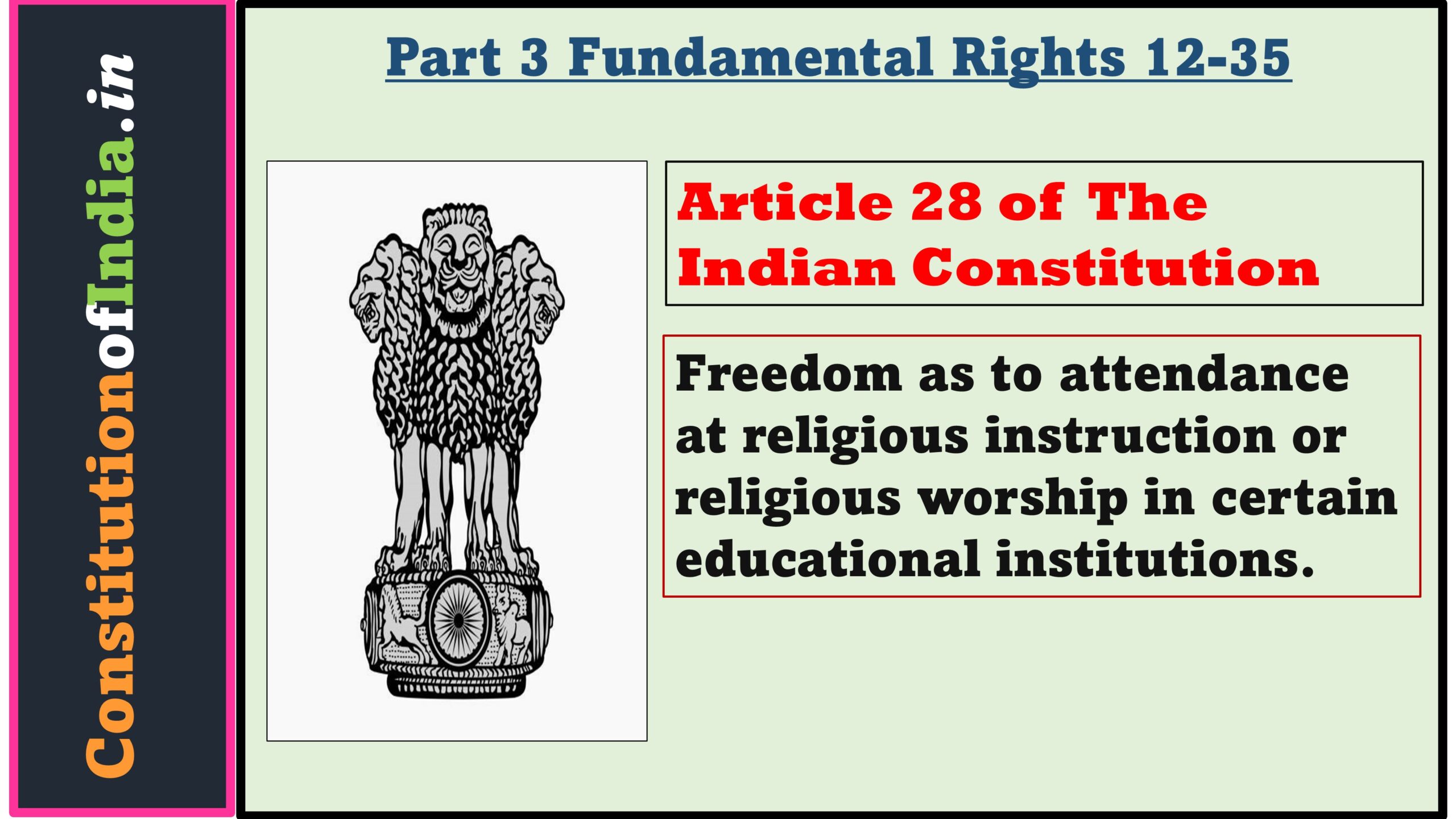Article 28 of Indian Constitution: Freedom as to attendance at religious instruction or religious worship in certain educational institutions.

Article 28 Freedom as to attendance at religious instruction or religious worship in certain educational institutions – Constitution of India
- No religious instruction shall be provided in any educational institution wholly maintained out of State funds.
- Nothing in clause (1) shall apply to an educational institution which is administered by the State but has been established under any endowment or trust which requires that religious instruction shall be imparted in such institution.
- No person attending any educational institution recognised by the State or receiving aid out of State funds shall be required to take part in any religious instruction that may be imparted in such institution or to attend any religious worship that may be conducted in such institution or in any premises attached thereto unless such person or, if such person is a minor, his guardian has given his consent thereto.
Summary of Article 28 of Indian Constitution
Article 28 of the Indian Constitution says that schools funded by the government can’t teach religion. But there’s an exception for schools run by the government under religious trusts. Also, students in government-recognized schools can’t be forced to take part in religious activities unless they or their guardians agree. This rule keeps schools neutral about religion, giving students the choice to participate or not.
Explanation using Example
Imagine two schools in India: Sunshine Public School, funded by the government, and Divine Academy, also government-funded but established under a religious trust. Sunshine Public School can’t teach religion, but Divine Academy can due to the trust’s influence. For instance, Ravi at Sunshine Public School isn’t required to join religious activities, while Priya at Divine Academy might attend them. This demonstrates Article 28’s role in maintaining secular education in government-funded schools while respecting religious teachings in specific contexts.
FAQ on Article 28 of Indian Constitution
What does Article 28 of the Indian Constitution regulate?
Article 28 governs the provision of religious education in state-funded or recognized educational institutions.
Are all schools bound by Article 28’s restrictions?
No, Article 28(1) applies specifically to state-funded institutions, prohibiting them from offering religious instruction as part of the curriculum.
Is there any exception to this rule?
Yes, Article 28(2) provides an exception for state-administered schools established under trusts mandating religious teachings.
Do students have a choice regarding religious instruction?
Yes, Article 28(3) ensures that students in state-recognized schools cannot be compelled to attend religious activities without explicit consent.
Does Article 28 extend to privately funded schools?
No, Article 28 is applicable only to educational institutions funded or recognized by the state, allowing privately funded schools more autonomy in curriculum decisions.